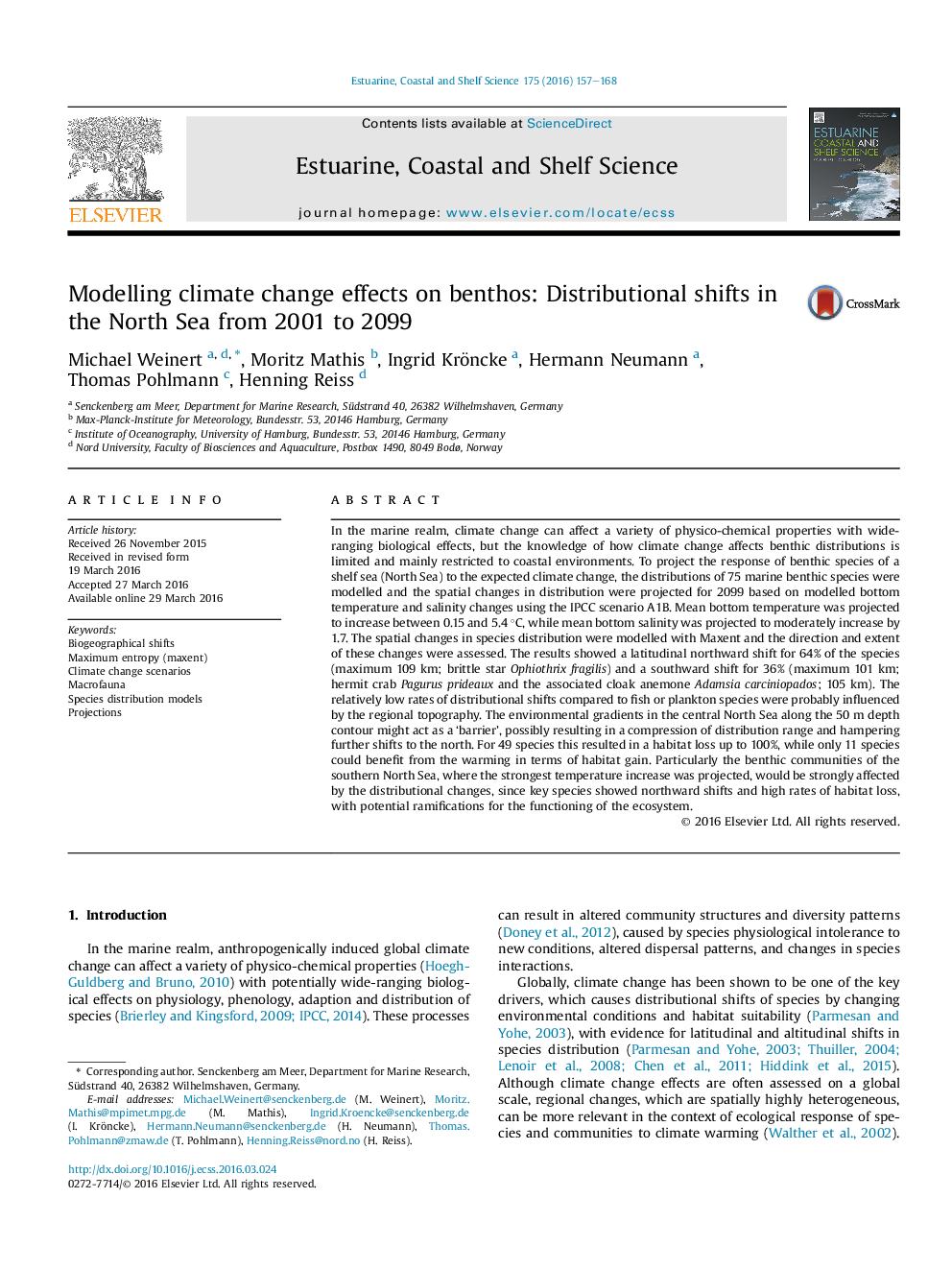| کد مقاله | کد نشریه | سال انتشار | مقاله انگلیسی | نسخه تمام متن |
|---|---|---|---|---|
| 4539237 | 1626624 | 2016 | 12 صفحه PDF | دانلود رایگان |
In the marine realm, climate change can affect a variety of physico-chemical properties with wide-ranging biological effects, but the knowledge of how climate change affects benthic distributions is limited and mainly restricted to coastal environments. To project the response of benthic species of a shelf sea (North Sea) to the expected climate change, the distributions of 75 marine benthic species were modelled and the spatial changes in distribution were projected for 2099 based on modelled bottom temperature and salinity changes using the IPCC scenario A1B. Mean bottom temperature was projected to increase between 0.15 and 5.4 °C, while mean bottom salinity was projected to moderately increase by 1.7. The spatial changes in species distribution were modelled with Maxent and the direction and extent of these changes were assessed. The results showed a latitudinal northward shift for 64% of the species (maximum 109 km; brittle star Ophiothrix fragilis) and a southward shift for 36% (maximum 101 km; hermit crab Pagurus prideaux and the associated cloak anemone Adamsia carciniopados; 105 km). The relatively low rates of distributional shifts compared to fish or plankton species were probably influenced by the regional topography. The environmental gradients in the central North Sea along the 50 m depth contour might act as a ‘barrier’, possibly resulting in a compression of distribution range and hampering further shifts to the north. For 49 species this resulted in a habitat loss up to 100%, while only 11 species could benefit from the warming in terms of habitat gain. Particularly the benthic communities of the southern North Sea, where the strongest temperature increase was projected, would be strongly affected by the distributional changes, since key species showed northward shifts and high rates of habitat loss, with potential ramifications for the functioning of the ecosystem.
Journal: Estuarine, Coastal and Shelf Science - Volume 175, 20 June 2016, Pages 157–168
